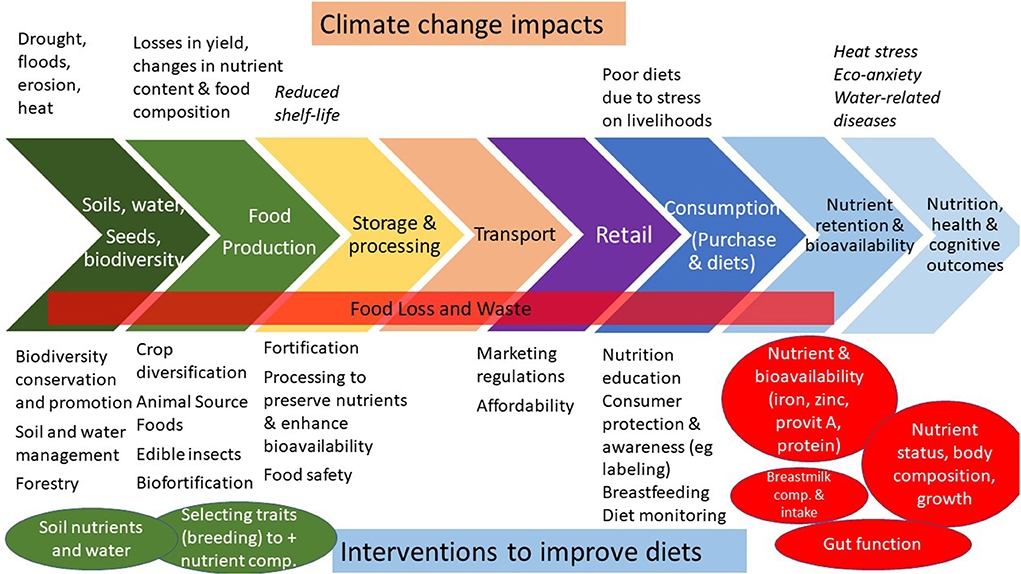
At the recently held 28th UN Climate Change Conference (COP28), the global spotlight was firmly focused on the intricate connection between climate change, nutrition, and health. The conference, which brought together experts from international organizations such as the IISD, the Global Alliance for the Future of Food, FAO, and CGIAR, emphasized the urgent need for a food system transformation to ensure global food security in the face of escalating climate change.
The Impact of Climate Change on Food Security, Nutrition, and Health
Climate change has far-reaching implications for food security, nutrition, and health. Increasing temperatures and changing weather patterns are reducing crop yields and nutritional value, leading to food insecurity and malnutrition. This is particularly detrimental to low-income and disadvantaged countries and communities, who bear the brunt of climate change’s adverse effects on health and development progress.
The threat to human health is not only about food scarcity. Climate change also impacts clean air, safe drinking water, nutritious food supply, and safe shelter, thereby threatening global health progress. Of particular concern is the vulnerability of certain groups such as elders, children, and women, to the impacts of climate change on health and nutrition. This vulnerability is exacerbated by extreme weather events and ecosystem deviation, which are becoming increasingly common due to climate change.
The Detrimental Effects of Industrial Food Systems
While climate change poses significant challenges to food security and nutrition, it’s important not to overlook the harmful effects of industrial food systems on human health and the environment. These systems, which are characterized by high input, high output, and low diversity, contribute significantly to greenhouse gas emissions, biodiversity loss, and environmental degradation. Furthermore, the over-reliance on a small number of crops and animal breeds increases the vulnerability of our food system to climate shocks.
Transforming the Food System: Proposed Actions and Innovations
As the interconnected challenges of malnutrition and climate change become more apparent, the need for a wholescale food systems transformation becomes more urgent. Several integrated climate-nutrition actions have been proposed, including diversifying crop and animal production, reducing food loss and waste, promoting sustainable agricultural practices, and supporting climate-resilient breeds and varieties.
In addition to these actions, experts also emphasize the need for catalytic research and development (R&D) and innovations to address the health, agricultural, and environmental challenges posed by climate change. These innovations may range from new crop varieties that can withstand changing climates, to novel methods for reducing food waste and improving supply chain efficiency.
It is clear that the transformation of our food system will require a concerted effort from all stakeholders, including governments, the private sector, civil society, and individuals. As highlighted at the COP28, this transformation is not just about ensuring food security, but also about protecting health and nutrition in the face of climate disruptions.
Conclusion: A Call to Action
As we continue to grapple with the effects of climate change, it is imperative that we prioritize the transformation of our food system. The discussions at the COP28 have highlighted the urgent need for action, and it is up to us to heed this call. Through integrated climate-nutrition actions, sustainable agricultural support, and fostering innovation, we can protect health and nutrition for all, while also working towards a more sustainable and resilient future.
